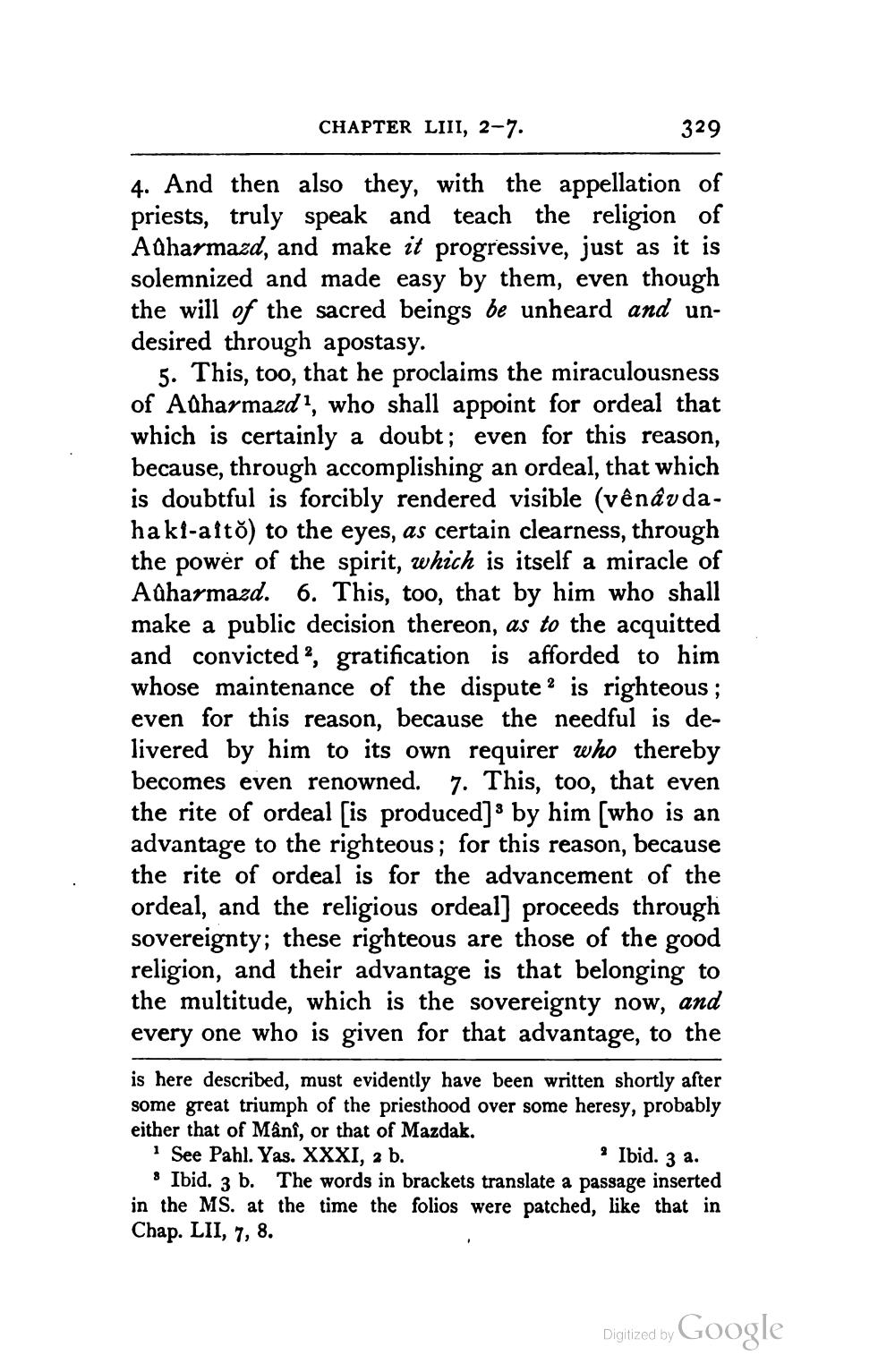________________
CHAPTER LIII, 2-7.
329
4. And then also they, with the appellation of priests, truly speak and teach the religion of Aûharmazd, and make it progressive, just as it is solemnized and made easy by them, even though the will of the sacred beings be unheard and undesired through apostasy.
5. This, too, that he proclaims the miraculousness of Aûharmazd1, who shall appoint for ordeal that which is certainly a doubt; even for this reason, because, through accomplishing an ordeal, that which is doubtful is forcibly rendered visible (vênâvdahaki-aito) to the eyes, as certain clearness, through the power of the spirit, which is itself a miracle of Aûharmazd. 6. This, too, that by him who shall make a public decision thereon, as to the acquitted and convicted, gratification is afforded to him whose maintenance of the dispute is righteous; even for this reason, because the needful is delivered by him to its own requirer who thereby becomes even renowned. 7. This, too, that even the rite of ordeal [is produced] by him [who is an advantage to the righteous; for this reason, because the rite of ordeal is for the advancement of the ordeal, and the religious ordeal] proceeds through sovereignty; these righteous are those of the good religion, and their advantage is that belonging to the multitude, which is the sovereignty now, and every one who is given for that advantage, to the
is here described, must evidently have been written shortly after some great triumph of the priesthood over some heresy, probably either that of Mânî, or that of Mazdak.
2 Ibid. 3 a.
1 See Pahl. Yas. XXXI, 2 b.
Ibid. 3 b. The words in brackets translate a passage inserted in the MS. at the time the folios were patched, like that in Chap. LII, 7, 8.
Digitized by
Google




